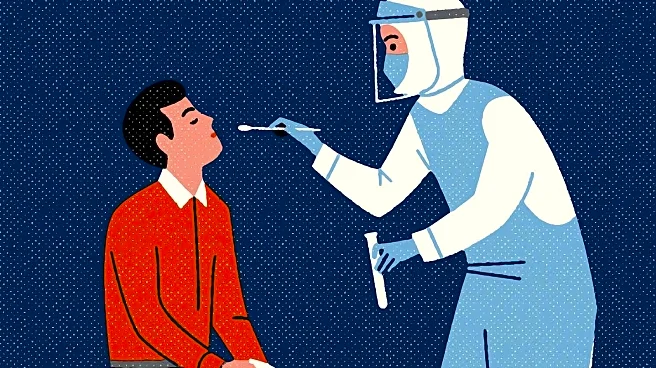What is the story about?
What's Happening?
The vaccine industry in the United States is experiencing significant challenges due to policy changes implemented by Health and Human Services Secretary Robert F. Kennedy Jr. Known for his previous anti-vaccine activism, Kennedy has been using his position to question the efficacy and safety of vaccines, including those for coronavirus and measles. This has led to a reduction in government research funding and a more challenging regulatory environment for vaccine development. Companies like Vaxcyte have delayed trials for new vaccines, citing financial constraints and a 'dynamic macro environment.' The shift in policy has also resulted in the cancellation of $500 million in contracts for mRNA-based vaccines, and the replacement of an advisory panel with members critical of coronavirus vaccines. These changes have created uncertainty and hesitancy among investors, affecting the financial stability and innovation within the vaccine industry.
Why It's Important?
The policy changes under Secretary Kennedy's leadership have significant implications for public health and the biotech industry. By reducing funding and increasing regulatory hurdles, the development of new vaccines could be slowed, potentially impacting the ability to respond to future health crises. The skepticism towards mRNA technology, despite its proven efficacy, could deter investment in innovative vaccine solutions. This environment may lead to fewer vaccines being developed, which could have long-term consequences for disease prevention and public health. The situation also highlights the tension between scientific innovation and regulatory oversight, with potential impacts on investor confidence and the financial viability of biotech companies.
What's Next?
The vaccine industry may need to navigate these challenges by aligning with the administration's priorities or seeking alternative funding sources. Companies might focus on older vaccine technologies or adjust their strategies to meet new regulatory expectations. The broader biotech sector will likely monitor these developments closely, as they could influence investment decisions and the pace of innovation. Stakeholders, including public health officials and industry leaders, may advocate for policies that balance safety with the need for scientific advancement.
Beyond the Headlines
The current climate raises ethical and cultural questions about the role of government in public health and the influence of personal beliefs on policy-making. The skepticism towards vaccines could erode public trust in health recommendations, potentially leading to lower vaccination rates and increased vulnerability to preventable diseases. The situation underscores the importance of evidence-based decision-making in public health and the need for clear communication to maintain public confidence in vaccines.















